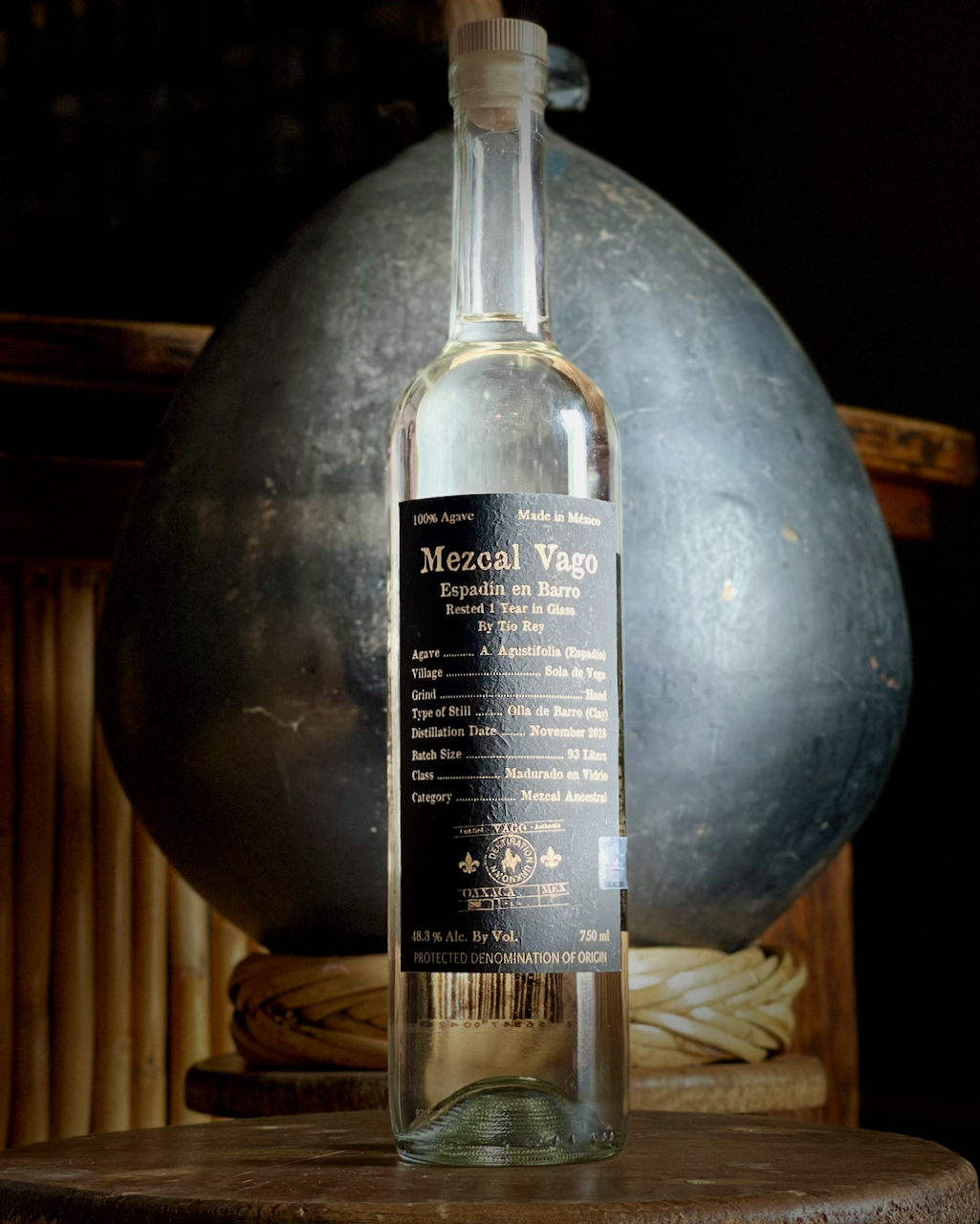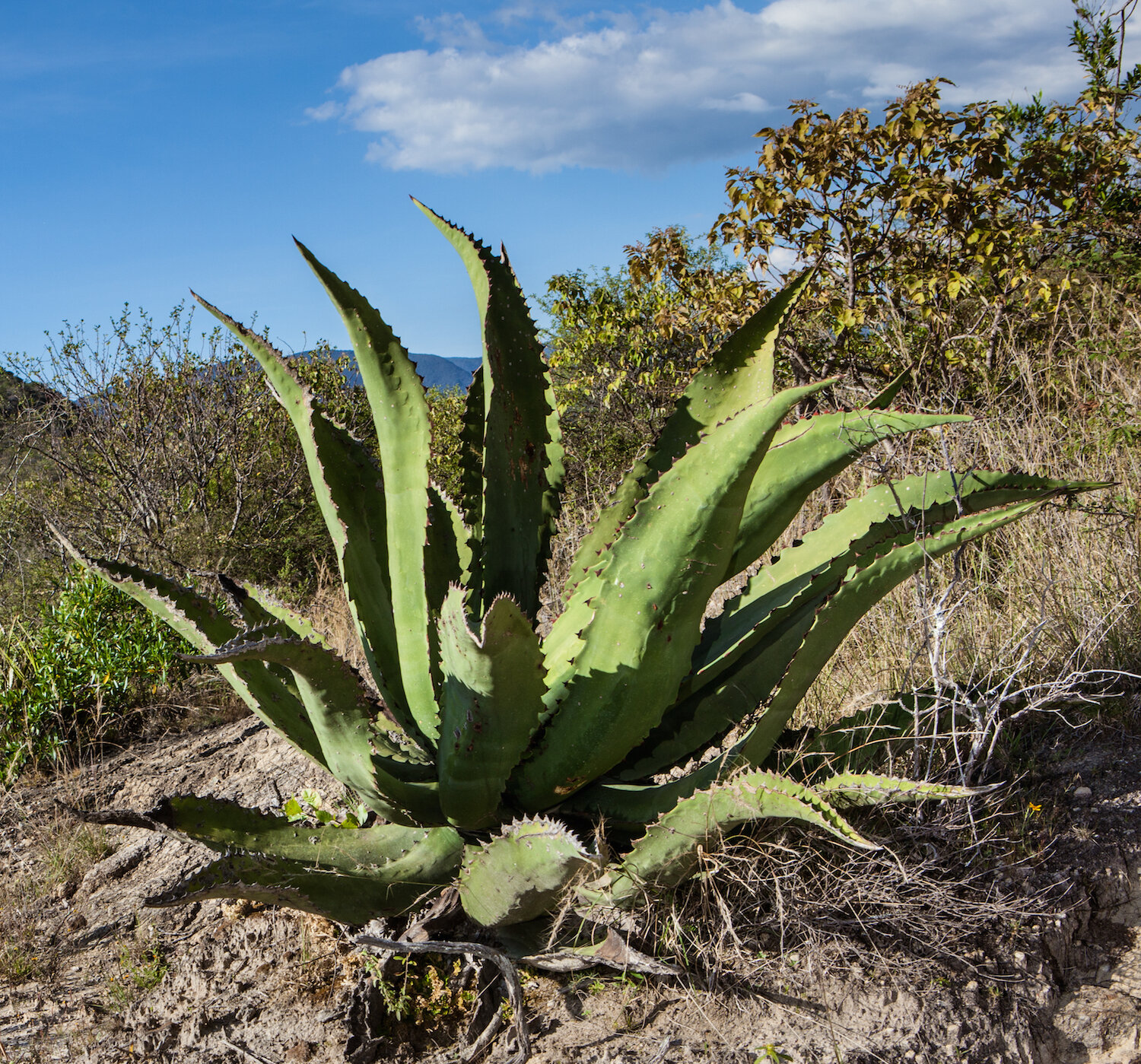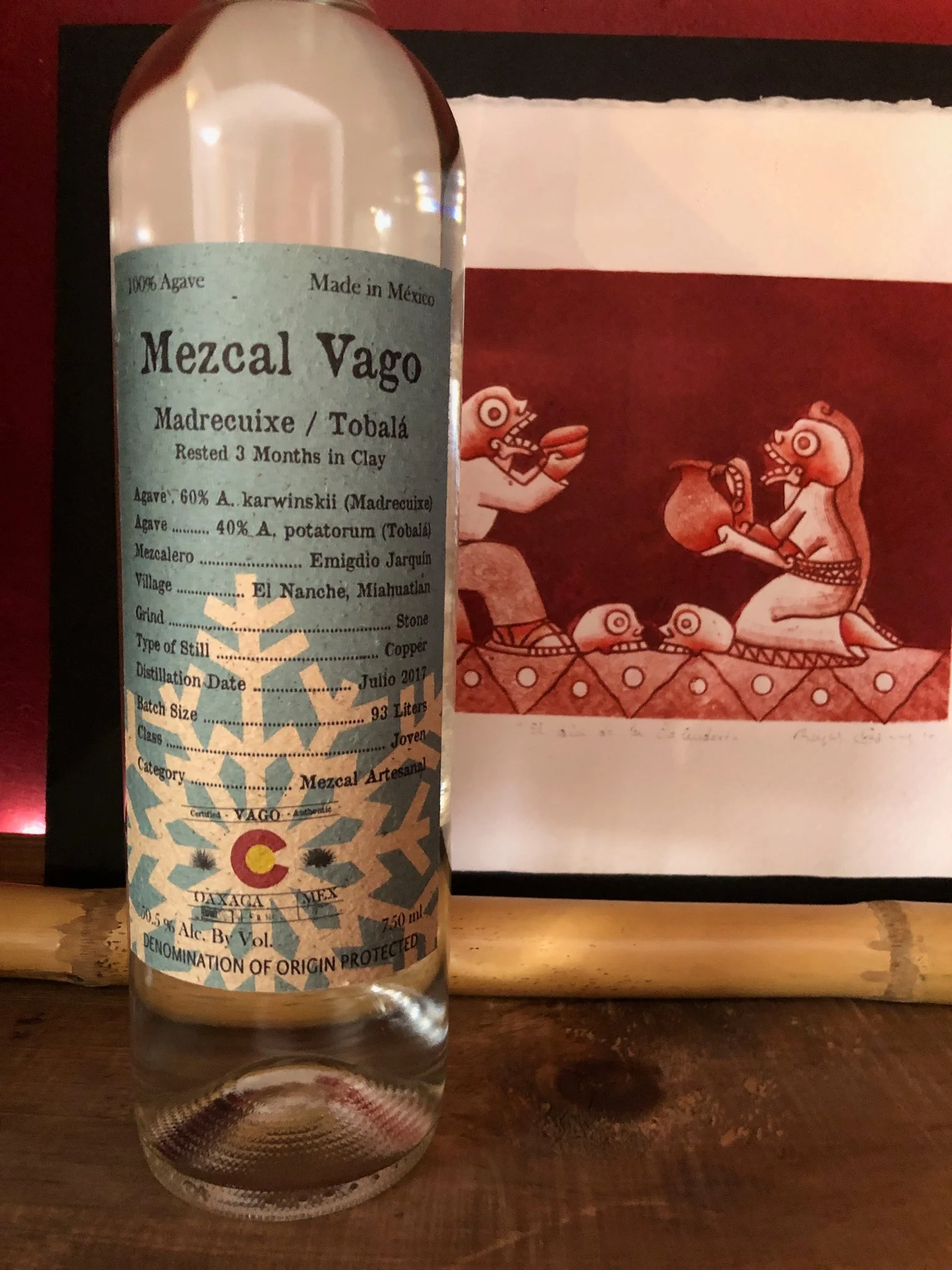Tepeztate de Emigdio Jarquín Reposado en Vidrio
This special release of Tepeztate is an exciting collaboration with Argonaut Wine & Liquor in Denver, CO. With Vago Co-Founders Judah Kuper and Dylan Sloan having Colorado roots, it has always been a “home market” of sorts, with some of our biggest fans and best friends. Argonaut is no exception. We are very excited to share this special batch of 50 liters of Tepeztate from Emigdio Jarquín that we put aside to rest in glass for one year, allowing it to be designated as Madurado en Vidrio.
This batch was crafted from 35 piñas of Tepeztate (a. Marmorata) weighing 2,130 kg which were hand-harvested on March 1st, 2019. They were roasted underground in an earthen pit over four days from March 2nd - March 5th. They were then crushed using a tahona before being fermented in the open air in pinewood vats. The 3,129 liters of must was distilled for the first time in 250-liter copper pot stills, yielding 500 liters of ordinario at 18% ABV. The second distillation yielded 143 liters of still-strength mezcal at 59% ABV. Before bottling, we added 31 liters of blended colas w/ agua at 5.16% ABV in order to get a final batch of 171 liters of mezcal at 50.3% ABV. We then separated 50 liters to rest in glass garrafones for 1 year.
Agave Tepeztate
Aquilino Harvesting Wild Tepeztate
Known variously as du- cual (Zapotec), pitzomel (Nahuatl), de Caballo, Curandero, Becuelo, and others, Agave Tepeztate (a. Marmorata) are some of the most prized agave for producing mezcal. Renowned for their unique appearance and delicate flavors, these agave produce some of the most floral and readily identifiable mezcals. Often growing directly out of rock cliff faces, like Tobalá these agave have a propensity for growing in very difficult and inaccessible locations, making harvesting these unwieldy behemoths notoriously difficult. At the upper end of the spectrum, these agave can weigh around 200 kg, or 450 pounds at the time of harvest! The aromatic high tones to these mezcals can be partially attributed to their lower starch content compared to varieties like Espadín and Coyote. When approaching maturity these agave will often absorb more water than most, further diluting their starch content, reducing the mezcalero's yield, and elevating the floral qualities and light finish of these prized mezcals. Despite being seemingly delicate in nature, Tepeztate have some of the most complex, long-lasting finishes in the mezcal world; finishes that continue to evolve over a long period.
While some mezcaleros say that Tepeztate can take up to thirty-five years to mature, the Tepeztate of Don Emigdio and Don Aquilino typically take between fifteen and twenty years before they are ready to harvest. However, Aquilino has been able to harvest cultivated Tepeztate in as little as seven to ten years. In 2016 Aquilion planted around 450 Tepeztate plants, with an eye to plant even more in 2017. The distribution of Tepeztate is represented by the green shading in the map below:
Image taken from CONABIO website
Emigdio Jarquín Ramirez
Emigdio distills outside of Miahuatlán de Porfirio Díaz. We are very proud and excited to have finally found a mezcalero from this area we can put in a Vago bottle. Miahuatlán is a historically important town in mezcal production as well as where both Aquilino and Tío Rey’s families emigrated from. By adding Emigdio to the family, we are able to extend the conversation of our history and tradition even further back in time.
Emigdio’s land is in the Nanche district of Miahuatlán de Porfirio Diaz, about 2 ½ hours directly South of Oaxaca City. The palenque sits at around 4,970 ft., among gently rolling hills and shallow arroyos in a semi-arid climate. In the surrounding area grows Agave Espadín, Mexicano Verde, Tobalá, Tepeztate, Arroqueño, Pulquero, Madre Cuixe, and Bicuixe (Cuixe).
Mezcal goes back in his family at least three generations, Emigdio having learned it from his grandfather. Their horno is a conical pit dug into the earth, which can hold up to 7 tons of Espadin. Emigdio usually roasts his agave for 5-7 days, which is on the longer end of an average roast. He then lets it rest in the sun to cool for one to two weeks.
The Rolling Hills of Miahuatlá
They use a cement tahona lined with rocks and pulled by mule to crush their agave. Once crushed, they use four Ocote wood fermentation vats with volumes of 1,470, 1,600, 1,600, and 1,700 liters, which usually take around three days to ferment to completion.
Distillation is done in a 300 l. copper refrescador still. Refrescador is a technique that is common to the area surrounding Miahuatlan, but Vago has never used before. The still looks similar to a copper alembic still with a stainless steel cylinder surrounding it. This cylinder is then filled with water, allowing it to cool the upper part of the still. This upper chamber now acts as a condenser and sends the alcohol vapor back down into the boiler before being heated again and passing out of the still and into the condensing coil. This method essentially allows for two distillations during a single pass through the still. Cuts are made using a carrizo to test for ABV as well as taste and smell. A full capacity 300 l. still will produce, on average, 100 l. of mezcal in roughly 14 hours.
A full roast of 700 tons will produce up to 700 l. of mezcal depending upon the which agave is being used. ABV is then adjusted by using colas that have been rested with distilled water in order to preserve taste and mouthfeel. Like all Vago mezcal, Emigdio’s goes through a simple sediment filtration through a tubular cellulose filter before bottling. The bottling is done by hand in Oaxaca City. The very light filtration is the only way the mezcal is affected between when it was made on the palenque and how it ends up in the bottle.













